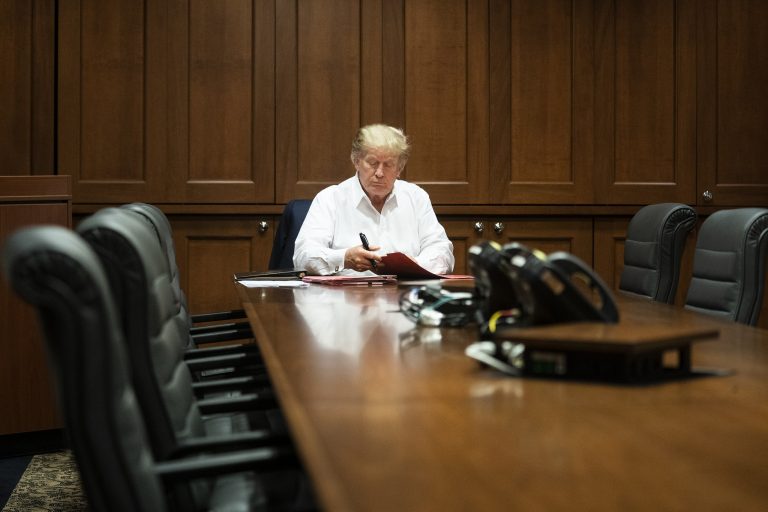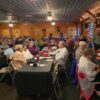Thanks to an experimental drug, President Donald Trump says he is now “immune” to COVID-19.
Last week, Trump spent three days in Walter Reed Military Medical Center after testing positive for COVID-19. He was given an “antibody cocktail” made by biotech company Regeneron.
“Just hours after his physician issued a memo saying he is no longer ‘a transmission risk’ to others, Trump said in an interview on Fox News that he no longer has the disease and suggested he is now immune to the coronavirus,” USA Today reported.
According to ABC News, the Regeneron cocktail was developed by using mouse and hamster cells.
The president claimed the experimental cocktail is a “cure,” but Politico reported that CEO of Regeneron Leonard Schleifer said clinical trials are still needed before assuming this is true.
“The real evidence has to come about how good a drug is and what it will do on average has to come from these large clinical trials, these randomized clinical trials, which are the gold standard. And those are ongoing,” Schleifer said, reported by Politico. “We’ve got some preliminary evidence that we’ve talked with the FDA, and we’re going for an emergency use authorization, because we think it’s appropriate at this time.”
This cocktail was not the only therapy the president was given.
“Dr. Taison Bell, a critical care physician at the University of Virginia, noted that it was not yet possible to tell whether the treatment actually ‘cured,’ or even significantly benefited, the president,” The New York Times reported. “Doctors administered it to Mr. Trump alongside other therapies, including an antiviral called remdesivir and a steroid called dexamethasone. The latter is known to provoke a temporary surge in well-being.”
On Wednesday, Oct. 7, Regeneron announced it was seeking an emergency approval from the FDA for the therapy cocktail. Though Trump’s treatment might not necessarily be the reason for his recovery, the new therapy could possibly open the doors for finding a cure.
“The data so far for monoclonal antibodies looks ‘very promising,’ said Dr. Phyllis Tien, an infectious disease physician at the University of California, San Francisco,” The Times reported. “But it’s crucial, she added, to let the trials run to completion to fully assess safety and efficacy. Unanticipated side effects could crop up, or the treatment might not perform as well in certain people as it does in others.”




